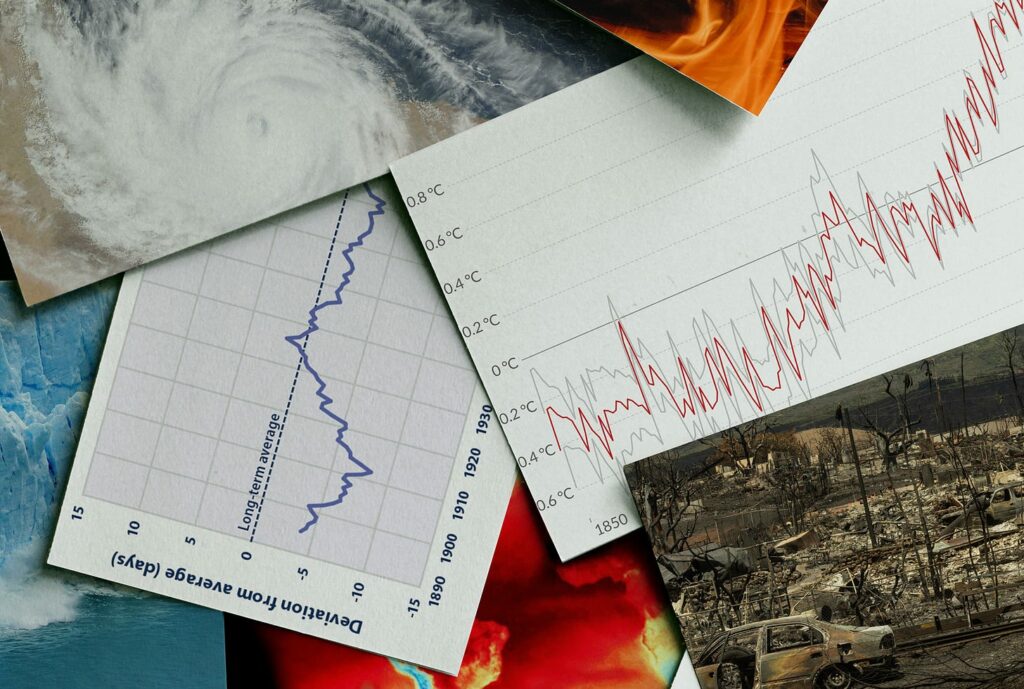At CDN we regularly make sport of the journalistic habit of putting “Experts say” into a headline where “Random leftists say” would be more accurate and more honest. You know, the ones like “Experts warn US should prepare for disasters more intense than all hurricanes on record”. And as The Free Press editors recently pointed out, “One of the great lessons of the past decade is that when you read a variation of ‘experts say’ in a headline, you ought to think twice and for yourself.” Which we were reminded of when the herd of independent minds in the mainstream press rushed to announce that experts had said the DOE Red Team report on climate had been like totally debunked man, except for all the grudging concessions about where it got things right.
The New York Times got into the game, emailing “Top Stories” including “Scientists say that President Trump’s climate report is full of errors and cherry-picked data.” Which links to a story headlined “Scientists Denounce Trump Administration’s Climate Report” that blares “Scores of researchers reviewed the Energy Department’s argument about greenhouse gases and found serious deficiencies.” And on and on it goes throwing mud including about peer review.
The closest it comes to addressing what’s in the report, rather than the shrill cancellation effort, is a couple of passages such as:
“For example, the Energy Department report states that carbon dioxide is a greenhouse gas that helps plants grow, and therefore more gas would improve agricultural yields. The scientific review points out that the Energy Department report sidesteps the negative impacts of global warming on plant life, including extreme heat, drought, wildfires and floods.”
The report being a hasty 439-page demolition led by Andrew Dressler of Texas A&M “that essentially serves as a peer review” without being, you know, peer review. And says just because things in the report are true does not mean you should believe them:
“In another instance, the Trump administration’s report cited two studies by Antonio Gasparrini, a professor of epidemiology at the London School of Hygiene and Tropical Medicine, to support its statement that deaths caused by cold weather exceed those caused by heat. While that is true, Dr. Gasparrini said, the report ignores the fact that climate change is increasing heat-related deaths, and at a greater rate than it would prevent deaths from cold.”
But who are you going to believe, data or the experts who say?
Well, maybe the former. Because Roger Pielke Jr. warns all with ears to hear that “Science is Not Team Sport” and after noting that Dressler called the DOE report a rude word for cow poop that we refuse to reprint, and that the press seemed to have bought the smear job, says that he checked the supposed semi-peer-review response, which has grown to 459 pages, and was not impressed:
“I took a look at the DK25 report in my areas of expertise, as I did with the DOE CWG, and I found numerous statements that were simply false – among them that World Weather Attribution was not created with litigation in mind, that NOAA’s ‘billion dollar disasters’ (RIP) tabulation was scientifically valid, that SRES had 6 not 40 scenarios, and that RCP8.5 has not been the most commonly used scenario in research and assessment. DK25 ignored all of our research that was accurately cited by DOE CWG.”
The document is quite the embarrassment. As Matthew Wielicki also observes, their screed about cherry-picking seems to imply that the data do in fact show increases in extreme weather, sea level rise and so forth. But it doesn’t, and Wielicki notes of a passage RPJ also focused on:
“the review leans on a rhetorical maneuver that weakens its own case: ‘The absence of statistically significant trends in the historical records does not mean that changes are not occurring.’ That sentence concedes the core point: when the data are not significant, you do not have a detected trend. It is fine to speculate that changes might exist below detection, but that is not the same as evidence.”
Or, in Pielke Jr.’s version:
“‘the absence of statistically significant trends in the historical records does not mean that changes are not occurring’. Actually, that is exactly what the absence of detection means – don’t take it from me, take it from the IPCC, which defines a change in climate as follows: ‘A change in the state of the climate that can be identified (e.g., by using statistical tests) by changes in the mean and/or the variability of its properties and that persists for an extended period, typically decades or longer.’”
This response is not an attempt to do science, it’s an attempt to prevent it.
It’s especially revealing that the supposed refutation has a publicity-hungry web page including an extensive “news coverage” section so the journalists who say that experts say can find what other journalists said experts said and increase the mob pile-on instead of the intelligent discussion. It is very hard to imagine Einstein during the debate on relativity pointing to what CBS had said about the Fitzgerald-Lorentz contraction.
As RPJ also commented:
“Extreme event attribution, RCP8.5, and ‘billion dollar disasters’ are not the hills I’d choose to die on, but apparently the authors of DK25 were so intent in asserting that every claim of DOE CWG is false, that they could not admit the many places where DOE CWG got things right.”
So it was a very one-sided hack job, and the press totally missed it, while wrapping themselves in a lab coat they’d snuck off a hook somewhere.
The mantra of “peer review” is similar, especially given the abundant evidence that it does not prevent absurd errors including one we discussed last week involving a paper in Nature that grossly exaggerated probable damage from warming based on faulty data from Uzbekistan, which should of course not have carried a lot of economic weight even if it had been correct. And yet Bloomberg warns us against those wretched trees on climate grounds including this passage:
“Researchers have found that leafy canopies may have unintended consequences, especially when they cover places where surfaces do a good job at reflecting sunlight back into space – think snow, bright soils and grasslands. Trees in these locations can lower the so-called albedo effect, or the reflectivity of the Earth, and possibly even outweigh the cooling benefits of the carbon storage they provide, according to a study published in Nature, a peer-reviewed journal.”
Whose peer reviewers appear to be climate zealots not impartial gatekeepers. One of the study authors, by the way, is William Anderegg, a pivotal figure in the 97% consensus myth who has a long-standing thing about trees. But see experts say so shut up.



" ... Dressler called the DoE report a rude word for cow poop that we refuse to reprint"
Oh, you mean male bovine faeces?
Even if it weren't about AGW, the press would have to pile on, since 'Trump'. If he came out against CO2, they'd probably be for it.
X being an unknown factor
and spurt being a drip from a tap.
What is wrong with, "a leading authority" who, by definition, would require a degree of knowledge both educational and from research.